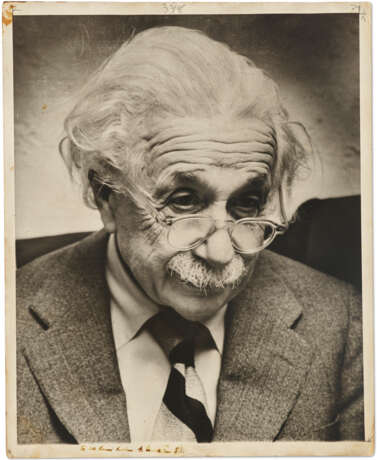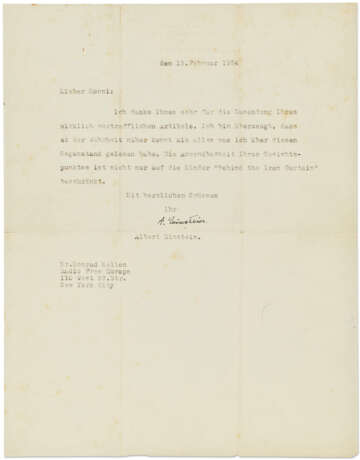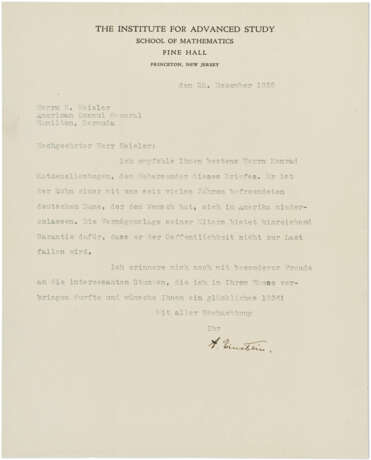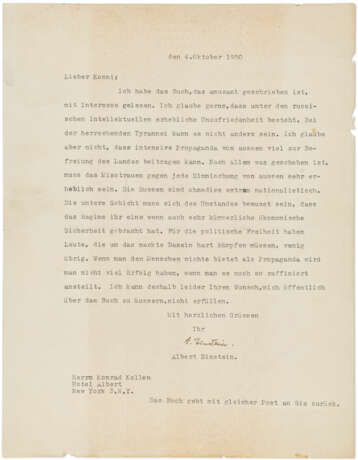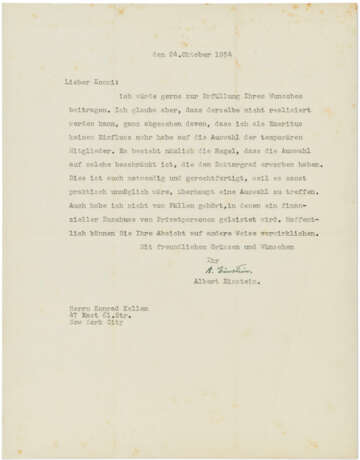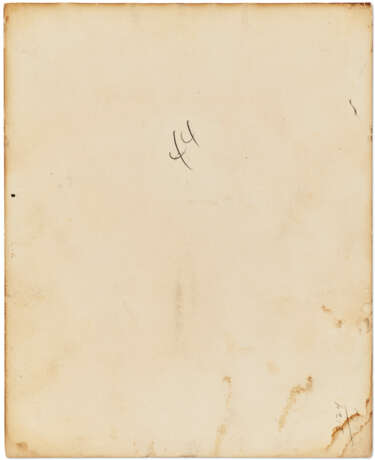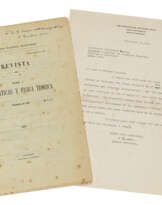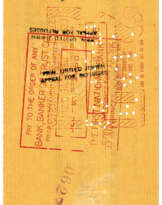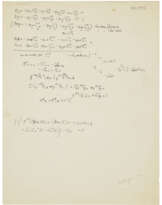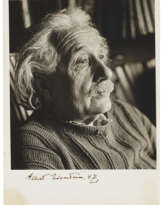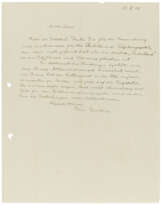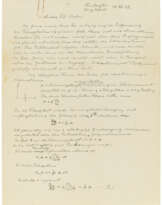ID 1472069
Lot 147 | Letters to Konrad Kellen
Estimate value
$ 10 000 – 15 000
[Includes:] Typed letter signed ("A. Einstein") to H. Heisler, Princeton, 28 December 1935. In German. One page, 254 x 203mm. A letter of reference for Konrad Katzenellenbogen noting that he is the son of "a German lady who has been a friend of ours for many years," and wishes to settle in the United States. Einstein attests that his parents, who had already come to the U.S. have the means to ensure he would not be a "financial burden to the public." He then fondly recalls the time he spent at Heisler's home when he came to Bermuda in May of 1935 in order to gain his U.S. citizenship. * Typed letter signed ("A. Einstein") to Konrad Kellen, Princeton, 4 October 1950. In German. One page, 280 x 125mm (light toning, marginal wear). Einstein thanks Kellen sending "the book, which is amusingly written, with interest." Musing that there must be "considerable dissatisfaction among Russian intellectuals," given the oppressive regime in the Soviet Union. He concedes that considering "everything that has happened, the mistrust of any outside interference must be very considerable," adding that the Russians tended toward nationalism regardless." Despite his agreement with the overall tone of the book, Einstein declined to comment on it publicly. * Typed letter signed ("A. Einstein") to Konrad Kellen, Princeton, 15 February 1954. In German. One page, 279 x 215mm (pinholes at fold intersections, light foxing). Einstein thanks Kellen for an article relative to Kellen's work with defectors from the Eastern Bloc, adding that his points had applicability beyond those "behind the Iron Curtain." * Typed letter signed ("A. Einstein") to Konrad Kellen, Princeton, 24 October 1954. In German, One page, 279 x 215mm (marginal wear, light foxing). Einstein expresses his inability to fulfill Kellen's request [apparently to secure a temporary fellowship at the Institute for Advanced Study], noting that as a emeritus faculty, he had little influence. He adds that selection was limited to those who had obtained doctoral degrees, and that he had never heard of an instance where a private individual received financial support. * Photograph, inscribed and signed in the lower margin: "To Mr Konni Kellen, A. Einstein 55". 252 x 202mm. (Some abrasions at margins affecting several words in inscription, several pencil marks at margins).
Konrad Kellen (1913–2007) was a German-born American political scientist, intelligence analyst, and author. Born into a prominent Jewish family in Berlin, his mother Estella Katzenkellenbogen enjoyed an intimate relationship with Albert Einstein. He fled Nazi Germany in 1933 and eventually settled in the United States, where he became a citizen and served as private secretary to Thomas Mann. During World War II, Kellen was part of the U.S. Army’s intelligence unit and later worked in psychological warfare, earning the Legion of Merit. He became known for his contrarian insights at the RAND Corporation, particularly his early and controversial conclusion that the Vietnam War was unwinnable due to high enemy morale—an assessment that diverged sharply from prevailing U.S. views. Kellen also studied the motivations of terrorists and defectors from behind the Iron Curtain, and authored several books, including a biography of Khrushchev and a sociological study titled The Coming Age of Woman Power.
| Artist: | Albert Einstein (1879 - 1955) |
|---|---|
| Place of origin: | USA |
| Auction house category: | Letters, documents and manuscripts, Medicine & science |
| Artist: | Albert Einstein (1879 - 1955) |
|---|---|
| Place of origin: | USA |
| Auction house category: | Letters, documents and manuscripts, Medicine & science |
| Address of auction |
CHRISTIE'S 8 King Street, St. James's SW1Y 6QT London United Kingdom | |
|---|---|---|
| Preview |
| |
| Phone | +44 (0)20 7839 9060 | |
| Buyer Premium | see on Website | |
| Conditions of purchase | Conditions of purchase |
